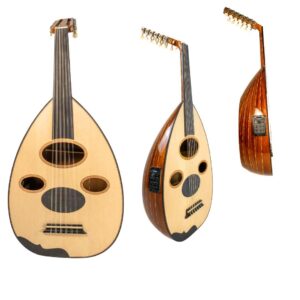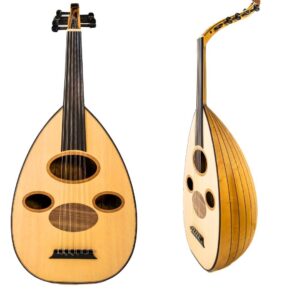Introduction: Where Ancient Traditions Meet Modern Musicians
In an increasingly connected world, music remains one of the most powerful bridges between cultures. For musicians seeking to explore the rich tapestries of world music, finding authentic, high-quality traditional instruments can be challenging. This is where Tapadum Ethnic Music Store stands apart as a premier destination for ethnic musical instruments from across the globe.
Whether you're a professional musician looking to expand your repertoire, a music student exploring new traditions, or an enthusiast drawn to the haunting melodies of ancient cultures, Tapadum offers an unparalleled collection of handcrafted instruments that preserve centuries of musical heritage.
The Tapadum Difference: Quality, Authenticity, and Cultural Preservation
What Makes Tapadum Special?
Tapadum Ethnic Music Store isn't just another online retailer – it's a cultural institution dedicated to preserving and sharing traditional music from Turkey, the Middle East, the Balkans, Persia, and beyond. Every instrument in their collection is:
- Hand-selected for superior craftsmanship and sound quality
- Authentically crafted by skilled artisans using traditional methods
- Culturally significant, representing genuine musical traditions
- Quality-tested to ensure optimal performance for both beginners and professionals
Comprehensive Instrument Categories: Explore the World's Musical Heritage
String Instruments: The Heartstrings of World Music
Tapadum's string instrument collection represents some of the most beloved and historically significant plucked instruments from across continents:
Turkish Classical and Folk Strings
- Turkish Oud: The king of Middle Eastern string instruments, featuring a distinctive pear-shaped body and rich, resonant tone perfect for Ottoman classical music
- Lavta and Tanbur: Essential instruments for Turkish classical ensembles, offering precise intonation and expressive capabilities
- Baglama and Çaglama: The soul of Anatolian folk music, these long-necked lutes have accompanied Turkish storytellers and folk singers for generations
Persian Traditional Instruments
- Persian Setar: A delicate four-stringed instrument central to Iranian classical music, known for its subtle, contemplative sound
- Tar: A larger Persian lute with a distinctive double-bowl body, offering rich harmonic possibilities
- Santur: A hammered dulcimer that creates shimmering, cascading melodies in Persian ensembles
Middle Eastern and Arabic Instruments
- Qanun: This trapezoidal zither is fundamental to Arabic, Turkish, and Armenian music, featuring 72-78 strings that create complex harmonic textures
- Buzuq: Available in both Kurdish and Arabic forms, this long-necked lute is known for its piercing, emotionally evocative sound
Balkan Folk Traditions
- Bulgarian Tambura: Essential for Bulgarian folk ensembles
- Macedonian Tambura: Central to Macedonian traditional music
- Greek Bouzouki: The iconic instrument of Greek folk and rebetiko music
Percussion Instruments: The Rhythmic Foundation of World Music
Tapadum's percussion collection spans continents, offering both traditional and modern rhythmic instruments:
Middle Eastern and Mediterranean Percussion
- Darbuka: The goblet-shaped drum that forms the rhythmic backbone of Middle Eastern music
- Riq: A tambourine-like instrument with jingles, essential for Arabic classical music
- Frame Drums: Various sizes and styles from different traditions
Persian and Central Asian Rhythms
- Tombak: Iran's primary percussion instrument, capable of producing a wide range of tones
- Daf: A large frame drum used in both folk and Sufi traditions
- Dayereh: A smaller frame drum with rings, popular in Persian folk music
African and Modern Percussion
- Udu Drum: An African clay vessel drum with deep, melodic tones
- Handpan: A modern steel percussion instrument with meditative, harmonic qualities
Wind Instruments: Ancient Melodies on the Breath
The wind instrument section at Tapadum features some of the world's most spiritually significant and culturally important breath instruments:
Mystical Reed Instruments
- Turkish Ney: The bamboo flute central to Sufi music, known for its breathy, spiritual tone
- Persian Ney: Similar to its Turkish cousin but with distinct regional characteristics
- Armenian Duduk: A double-reed instrument famous for its warm, mournful sound that has graced countless film soundtracks
Folk Wind Traditions
- Kaval: An end-blown flute popular in Bulgarian and Turkish folk music
- Mey and Zurna: Double-reed instruments essential to Anatolian folk ensembles
- Bansuri: Traditional Indian bamboo flute for those exploring South Asian music
Bowed Instruments: Voices That Sing Through Strings
Tapadum's bowed instrument collection includes unique fiddles and violin-family instruments from various cultures:
- Persian Kamancheh: A spike fiddle with four strings, essential to Persian classical music
- Classical Kemence: A small violin-like instrument from Ottoman court music
- Karadeniz Kemencesi: The folk fiddle of Turkey's Black Sea region
- Kabak Kemane: An Anatolian fiddle made from a gourd, offering rich emotional expression
Expert Services and Educational Resources
Tapadum Academy: Learning Beyond Purchase
What sets Tapadum apart is their commitment to education through Tapadum Academy, offering:
- Instructional videos for various instruments
- Cultural context for traditional music styles
- Technique tutorials for beginners and advanced players
- Historical background on instrument origins and development
Professional Support Services
- Expert consultation for instrument selection
- International shipping worldwide
- Quality guarantees on all instruments
- After-sale support for maintenance and care
Essential Accessories for Every Musician
Tapadum understands that great instruments need proper care and accessories:
Maintenance and Care
- Premium strings for various instruments
- Professional cleaning kits
- High-quality rosins for bowed instruments
- Precision tuners for accurate intonation
Protection and Transport
- Custom hard cases for valuable instruments
- Soft gig bags for everyday transport
- Protective covers for storage
Performance Accessories
- Traditional picks (mizrap) for plucked instruments
- Professional straps for comfortable playing
- Replacement parts including bridges, pegs, and reeds
Why Traditional Instruments Matter in Modern Music
Cultural Preservation Through Music
In our globalized world, traditional musical instruments serve as vital links to cultural heritage. By choosing authentic instruments from Tapadum, musicians become part of a larger movement to:
- Preserve ancient musical traditions for future generations
- Support traditional craftspeople and their time-honored techniques
- Foster cross-cultural understanding through shared musical experiences
- Maintain the authentic sound of traditional music genres
Contemporary Applications for Ancient Instruments
Modern musicians are increasingly incorporating traditional instruments into:
- World fusion projects that blend Eastern and Western musical traditions
- Film and game soundtracks requiring authentic ethnic sounds
- Therapeutic music practices utilizing the meditative qualities of traditional instruments
- Educational programs teaching global music traditions
Making Your Choice: Finding the Right Instrument
For Beginners: Starting Your Musical Journey
New players should consider:
- Baglama or Çaglama for those interested in Turkish folk music
- Frame drums for accessible percussion experiences
- Simple flutes like Kaval for wind instrument exploration
For Intermediate Players: Expanding Horizons
Musicians with some experience might explore:
- Turkish or Arabic Oud for complex melodic work
- Darbuka for advanced rhythm studies
- Persian Setar for microtonal music exploration
For Professional Musicians: Master-Level Instruments
Serious performers should investigate:
- Professional Qanun with full chromatic capabilities
- Concert-quality Ney for authentic traditional performances
- Premium Kamancheh for Persian classical ensembles
The Global Impact of Tapadum Ethnic Music Store
Building Musical Bridges Worldwide
Through their carefully curated selection and educational initiatives, Tapadum has:
- Connected musicians globally with authentic traditional instruments
- Supported artisan communities in Turkey, the Middle East, and beyond
- Facilitated cultural exchange through music education
- Preserved traditional craftsmanship by maintaining demand for handmade instruments
Customer Success Stories
Musicians worldwide have discovered new creative possibilities through Tapadum's instruments, from:
- Western classical composers incorporating Middle Eastern scales and timbres
- World music ensembles achieving authentic ethnic sounds
- Solo artists exploring meditative and therapeutic musical practices
- Music educators teaching global music traditions in schools and universities
Conclusion: Your Musical Journey Begins Here
Tapadum Ethnic Music Store represents more than just a place to purchase instruments – it's a gateway to understanding and participating in the rich musical traditions that have shaped human culture for millennia. Whether you're drawn to the spiritual sounds of the Sufi ney, the rhythmic complexity of Middle Eastern percussion, or the haunting melodies of the Armenian duduk, Tapadum offers authentic instruments that connect you directly to these ancient traditions.
By choosing Tapadum, you're not just buying an instrument; you're becoming part of a global community dedicated to preserving, sharing, and evolving the world's musical heritage. Every purchase supports traditional craftspeople, maintains authentic construction methods, and helps ensure that these beautiful instruments continue to enchant future generations of musicians.
Ready to Begin Your Musical Adventure?
Visit Tapadum Ethnic Music Store today to explore their complete collection of traditional instruments. With expert guidance, quality guarantees, and a commitment to authenticity, your journey into world music starts here.
Let your music tell ancient stories. Discover your instrument today at Tapadum Ethnic Music Store.















